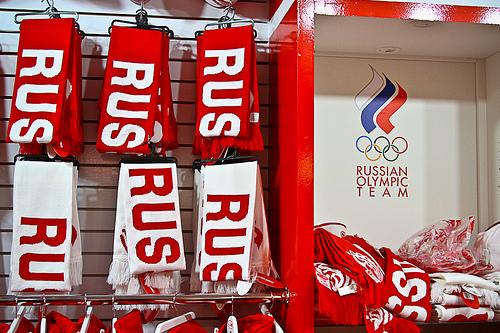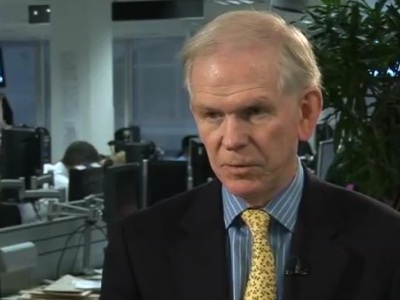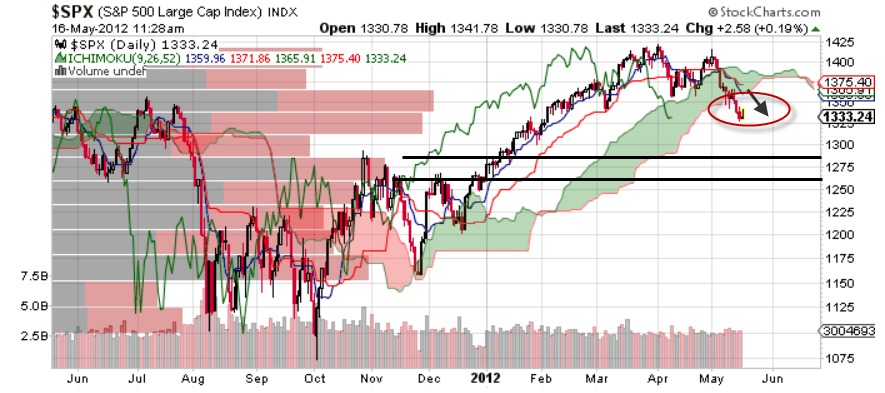The Sochi 2014 Winter Olympic Games will kick off in early February, placing Vladimir Putin’s Russia in the international spotlight. For investors, Russia offers both perils and opportunities.
Russian shares are expected to rise 6% in 2014, according to a recent poll by Reuters, and the market boasts an attractive dividend yield and equity valuation.
Russian stocks are trading on a dividend yield of 3.4%, around 30% higher than emerging markets overall, according to Credit Suisse. In November, Goldman Sachs recommended buyingRussian stocks, particularly energy plays. Goldman expects Russian oil and gas companies to experience a “modest valuation expansion.”
The MICEX Index, which tracks the 50 most liquid Russian Stocks on the Moscow Stock Exchange, is down slightly so far in 2014–and off 2.6% over the last 12 months.
Last fall, the stocks of Rosneft, the world’s largest publicly traded oil producer, and Gazprom, Russia’s natural-gas export monopoly, took off on news that President Vladimir Putin is pushing state-owned companies to pay out big dividends to boost Russian budget revenue and attract foreign investment. The government is planning to make state-owned companies pay higher dividends of 35% of their profits by 2016.
There’s a less flattering way to look at Russian stocks’ attractive valuation: It reflects investor worries about corporate governance and corruption. After all, the country ranked 127 out of 176 countries in Transparency International’s 2013 corruption perception ranking. Investor protection is always a concern when investing in Russia.
Also, the recent economic news out of Russia has been unremittingly awful, and the longer-term outlook faces challenges when you look at demographic trends.
The Russian economy, which is heavily dependent on energy prices, grew at a 1.2% in the third quarter, over the year-ago period–and has been decelerating on a quarter- to-quarter basis since the end of 2011, when gross domestic product expanded by 5.1%.
Russian Economy Minister Alexei Ulyukayev recently broke the news that the country’s share of the global economy is likely to shrink. Government forecasters project an average growth rate of 2.5% each year through 2030, below the global average of 3.4% or 3.5%.
At the same time, the U.S. shale-energy boom is complicating life for Putin, whose government finances and political power are tethered to oil and gas exports.
A team of economists from the Gaidar Institute for Economic Policy and Ranepa say Russia already faces serious fiscal challenges, despite official statistics that show a solid government financial position.
Russia and other emerging markets are off to a shaky start this year after a rough 2013. The Market Vectors Russia ETF (RSX) ended 2013 in negative territory and was down about 7% year-to-date as of Jan. 23.
Investors in emerging markets are hoping that Russia and other developing economies can finally turn things around. Emerging markets as a group underperformed the S&P 500 by a wide margin last year.
Although there are security concerns about the Winter Olympics, hosting the games may provide a boost to Russia’s economy.
The Dynamic Emerging Markets portfolio on Covestor currently holds the Market Vectors Russia ETF.
Photo Credit: WinstonWong
DISCLAIMER: The investments discussed are held in client accounts as of December 31, 2013. These investments may or may not be currently held in client accounts. The reader should not assume that any investments identified were or will be profitable or that any investment recommendations or investment decisions we make in the future will be profitable. International investing involves special risks, such as political instability and currency fluctuations. Past performance is no guarantee of future results.




